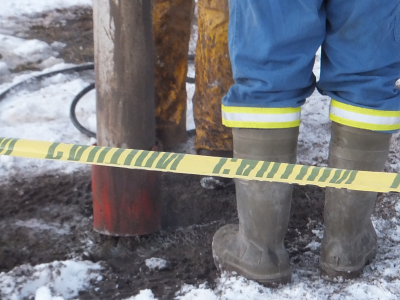Hydrovac Swamper Program

What does a Hydrovac Swamper do?
A Hydrovac Swamper supports the hydrovac operator in excavating soil safely and efficiently. They manage hoses, ensure site safety, and assist in material disposal. The swamper also helps maintain equipment and troubleshoot issues, contributing to the precise and controlled hydro excavation process that prevents damage to underground utilities.
What does the Hydrovac Swamper Program include?
The Hydrovac Swamper program is a comprehensive 9-week training initiative designed to equip participants with the essential knowledge and skills for effective hydro excavation operations. The program encompasses various modules, starting with an introduction to hydrovac operations, providing a foundational understanding of the hydro excavation process and the Hydrovac Swamper's role in supporting the operator. Emphasis is placed on safety protocols and the proper use of personal protective equipment. Participants will receive hands-on training in the handling and maintenance of tools and equipment, including high-pressure water jets and vacuum hoses. The program also covers practical aspects such as assisting with excavation and debris removal, proper worksite cleanup, and restoration procedures. Additionally, participants will gain insight into compliance with local regulations, ensuring adherence to waste disposal guidelines and road use restrictions. Overall, the Hydrovac Swamper Program offers a comprehensive curriculum to prepare individuals for a successful career in the field of hydro excavation.
Course Modules Outline:
• Basic understanding of the hydro excavation process, components of a hydrovac system
• The role of a Hydrovac Swamper in assisting the operator.
• Training on safety protocols specific to hydrovac operations.
• Focus on importance of personal protective equipment including gloves, goggles, steel-toe boots, and hard hats.
• Instructions on how to handle high-pressure water jets, vacuum hose and other tools.
• Incorporate regular checks, cleaning and minor maintenance tasks for these tools.
• Detailed training on assisting with managing excavated material, effective positioning of vacuum hose, and depositing soil in designated areas as needed.
• Ensuring that after operations, the worksite is cleaned up properly.
• Disposing collected materials according to regulations and restoring the site if necessary.
• Familiarity with relevant local regulations including waste disposals and road use restrictions when travelling from site to disposal facilities.

